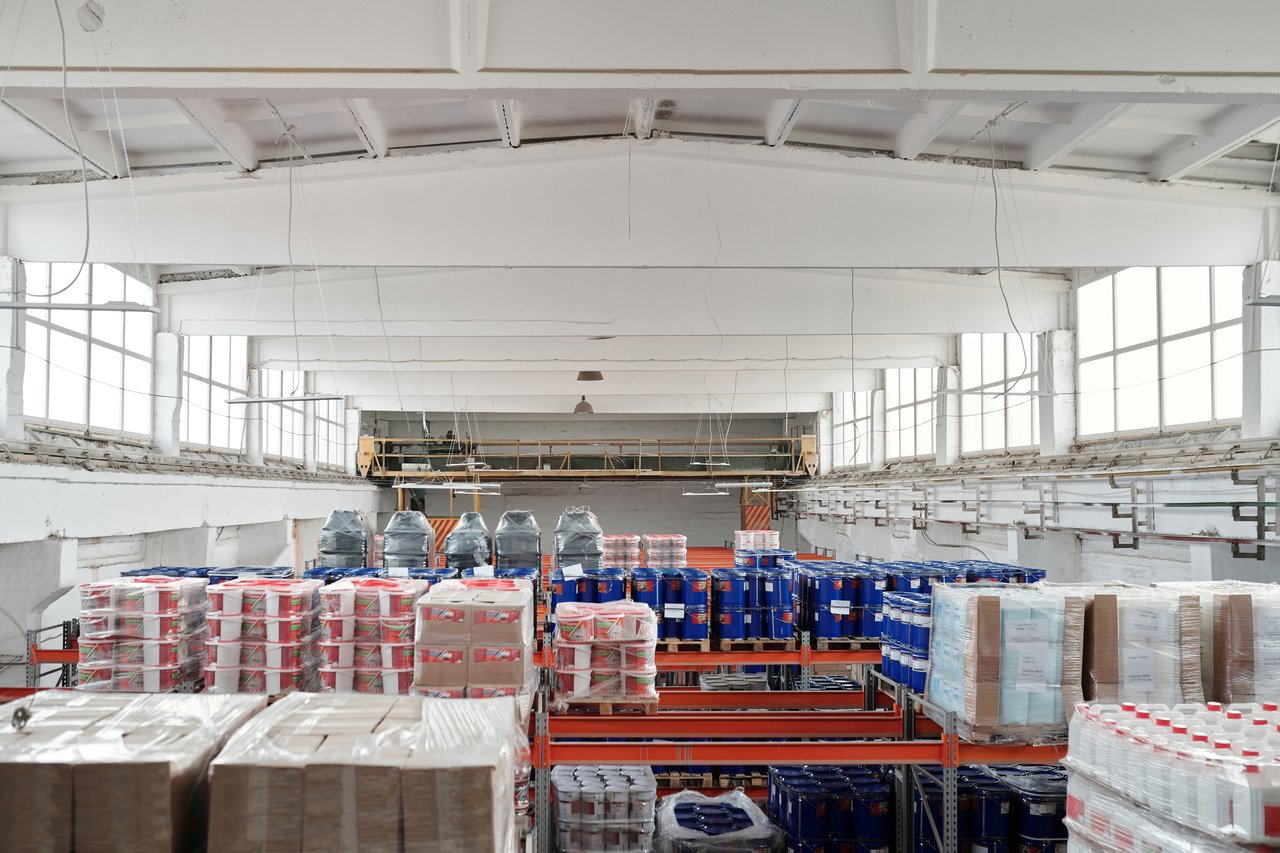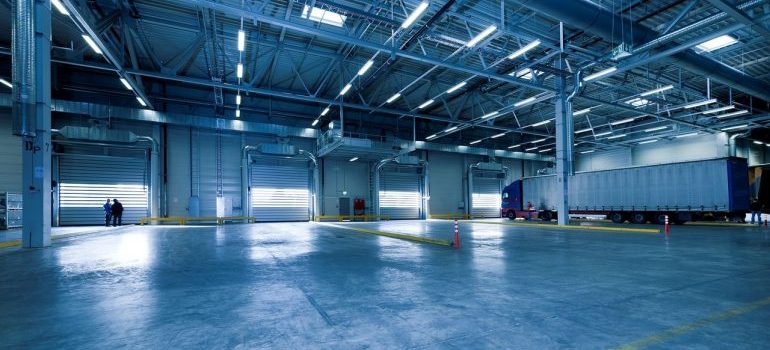Self storage vs. commercial warehouses
get a quote
When choosing between self-storage and commercial warehouses, it is essential to consider the distinct features and use cases of each. Both serve as storage solutions, but they cater to different audiences and requirements. Self-storage, particularly storage units North Seattle offers, is designed for flexibility and individual use, while commercial warehouses are built for businesses with large-scale storage needs. Let’s compare self storage vs commercial warehouses in depth!
What are self-storage units?
Self-storage units are versatile storage solutions available for personal and business use. And mobile self-storage units are a growing trend in this category. So, what are their key features?
- Flexibility: customers can load and unload at their convenience.
- Mobility: units are transported to the user’s location and can be moved to another location or a storage facility.
- Accessibility: units are typically available for temporary or long-term use, making them ideal for moves, renovations, or seasonal storage needs.
- Variety: available in sizes suitable for storing anything from a few boxes to an entire room’s worth of furniture.
The mobile storage containers in Seattle often come in varying sizes and can be accessed directly by the renter. Portable units are delivered to the customer’s location, allowing for convenient loading and unloading at their own pace. Once filled, the unit is transported to the nearest storage facility.
What are commercial warehouses?
Commercial warehouses are large-scale facilities designed to store goods for businesses. They often include services like inventory management, order fulfillment, and shipping. Here are also the key features of commercial warehouses:
- High capacity: designed for bulk storage of goods or materials.
- Logistics support: services such as inventory tracking, pallet storage, and shipping coordination are often provided.
- Security: enhanced measures like CCTV, gated access, and insurance options tailored to commercial needs.
Warehouses are critical for companies that require centralized storage for large quantities of goods or raw materials. Unlike self-storage, warehouses are not designed for direct customer access but are managed by staff trained to handle logistics.

Differences in uses and needs
Storage solutions come in many forms to meet a variety of personal and business demands. The choice depends on the user’s specific requirements, including accessibility, volume, and cost considerations.
Accessibility
Mobile self-storage units shine when convenience is key. Delivered right to your doorstep, these door to door storage Seattle units let you load and unload at your own pace, eliminating the need to transport goods to a facility. They benefit homeowners as well as small businesses handling their storage independently.
By contrast, access to commercial warehouses is more structured. Items are typically managed by warehouse staff, making them suitable for businesses that require organized inventory systems but not direct, on-demand access to goods.
Storage capacity
The scale of storage needs often dictates the choice between these two options. Portable units are well-suited for smaller loads, such as personal belongings, seasonal items, or small business inventory. They offer just enough space for manageable quantities.
On the other hand, commercial warehouses are designed to accommodate bulk storage. They cater to manufacturers, wholesalers, and retailers who need space for large inventories, often utilizing pallets and shelves to maximize capacity.
Cost considerations
Affordability plays a significant role when comparing self storage vs commercial warehouses. Mobile self-storage units are typically charged every month and offer cost-effective solutions for temporary or small-scale needs. You pay only for the space you use, without added logistics fees.
In contrast, commercial warehouses involve higher costs due to additional services like inventory management, handling, and transportation. Long-term leases are common, which may not be ideal for short-term storage.
Security
Security measures vary significantly between these options. Portable self-storage units rely on locks and often include monitored access at storage facilities. While sufficient for most personal or small business needs, they may not offer the advanced protection required for high-value items.
Commercial warehouses, however, prioritize security with 24/7 surveillance, controlled access, and tailored insurance options, providing peace of mind for businesses storing valuable or sensitive goods.

Customization and use cases
When evaluating self-storage and commercial warehouses, it is crucial to consider the diverse scenarios where each option excels. Let’s examine some practical applications.
On-demand self-storage units are especially useful for:
- Moving and relocation: mobile storage units are ideal for individuals in transition. Units can be delivered to homes, filled at the customer’s pace, and either stored or transported to the new location.
- Seasonal needs: perfect for storing items like holiday decorations, seasonal sports equipment, or patio furniture.
- Small business inventory: small businesses often use portable business storage in Seattle for overflow inventory or temporary storage during busy seasons.
- Renovations: mobile units offer on-site storage for furniture and belongings during home or office renovations.
For businesses with more complex needs, commercial warehouses provide tailored solutions such as:
- Inventory management: businesses with extensive product lines benefit from professional inventory tracking and palletized storage.
- Order fulfillment: warehouses often include fulfillment services, streamlining shipping processes.
- Raw material storage: manufacturers use warehouses to store raw materials before production.
- Scalability for growing businesses: companies with fluctuating inventory volumes rely on warehouses to accommodate their needs.
Advantages and disadvantages
Each option comes with its own set of pros and cons, depending on the user’s requirements.
Self-storage
Self-storage units, particularly mobile ones, provide flexibility and convenience for individuals and small businesses. Key benefits include:
- High flexibility and accessibility.
- Suitable for temporary or small-scale needs.
- Lower cost compared to warehouses.
- Portable units add convenience during moves or renovations.
However, there are limitations to consider:
- Limited capacity for bulk storage.
- Basic security measures compared to warehouses.
- Not ideal for businesses requiring logistical support.
Commercial warehouses
Commercial warehouses cater to larger-scale operations, offering several benefits:
- Accommodates large-scale storage needs.
- Professional inventory and logistics services.
- Advanced security features.
The drawbacks of using commercial warehouses include:
- Higher cost, including logistics and handling fees.
- Limited direct access to stored items.
- Long-term leases may not suit short-term needs.
Understanding the differences between these options ensures you select the right solution for your storage requirements. Evaluating factors such as accessibility, capacity, cost, and security, helps you make an informed decision that aligns with your goals.

Understand the options—choose the right solution
Both self-storage and commercial warehouses fulfill specific needs, but their applications differ significantly. Selecting the right storage solution depends on several critical factors. First, consider the volume and type of items you can(not) store. Mobile self-storage is a practical choice for small-scale needs, while commercial warehouses are better suited for larger inventories.
Next, think about the duration of your storage requirements. Mobile units are ideal for short-term use, while warehouses are designed for long-term storage. Budget also plays a crucial role, as self-storage tends to be more affordable and flexible compared to the higher costs associated with warehouses, which often include logistics services.
Location is another key consideration—if proximity and convenience matter, mobile self-storage is advantageous. For centralized distribution needs, warehouses excel. Finally, evaluate your logistical requirements when comparing self storage vs commercial warehouses. Businesses with complex supply chains or frequent inventory turnover will benefit more from the structured services of a commercial warehouse.
